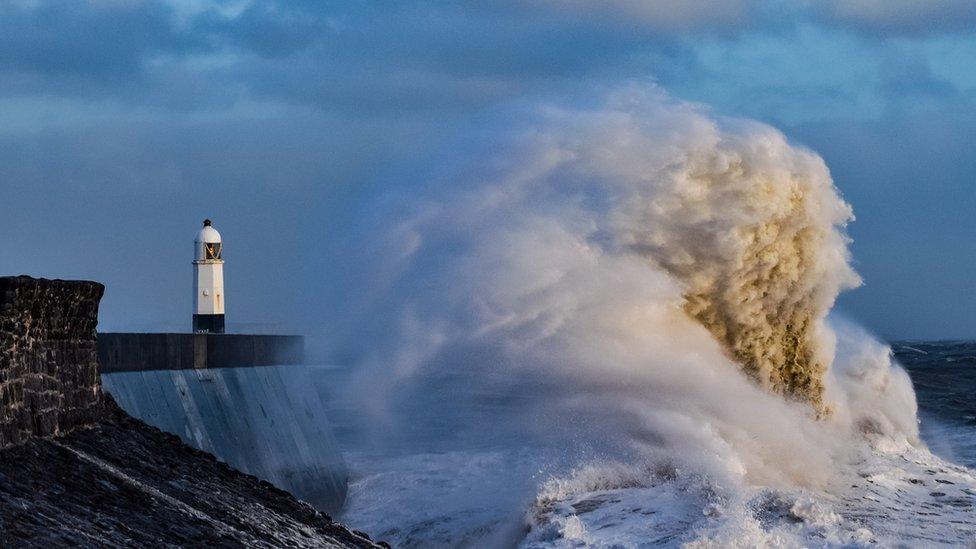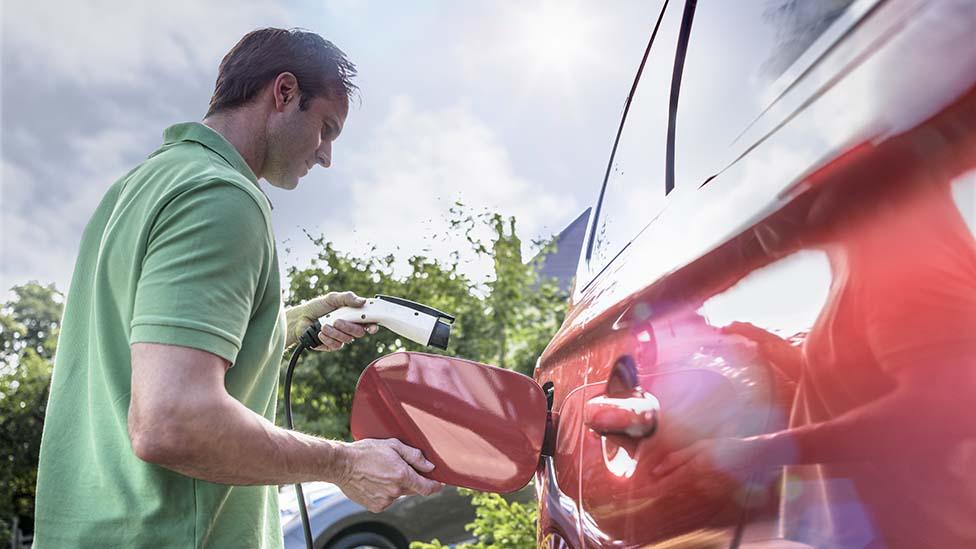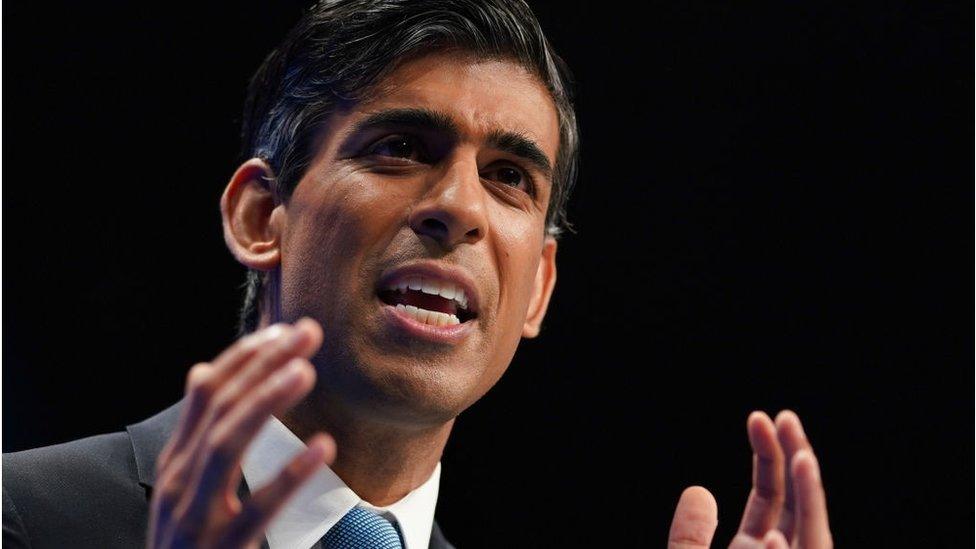Is the UK's green plan enough to halt climate change?
- Published

Climate change is contributing to extreme weather including storms and flooding in the UK
On Tuesday, the government set out a number of plans aiming to put the UK on course to achieve its climate goals. Funding for green cars, an end to gas boilers and tree-planting are some of the key announcements. But are they enough?
Let's not be ungenerous: the government's great over-arching green strategy is, on the face of, it a remarkable achievement.
Previous governments have theoretically espoused the need to live in harmony with the planet - but none has laid down a roadmap as to how that would be achieved.
It is especially important as Prime Minister Boris Johnson prepares to welcome world leaders to Glasgow for the vital climate conference known as COP26.
Mr Johnson will brandish his sheaf of eco-documents at delegates and offer a challenge: My friends - if we can do it, you can do it.
But huge uncertainties remain:
Are the government's new initiatives potent enough to transform the UK into a near zero emissions economy?
Who will pay?
And (I really don't want to ask this) are the government's carbon-cutting targets ambitious enough to protect a natural world that already appears in angry rebellion.
Let's tackle one and two because they're both sides of the same question.
Mr Johnson, for instance, has gained widespread credit for his global leadership in calling a halt to petrol and diesel cars and to gas boilers for home heating.
The cars announcement has triggered a competitive rush in international car makers who've been preparing for this moment for decades. Motorists can just slip behind the wheel and drive away.
Boilers is a different issue. Heat pumps are expensive and a hassle to fit. The Treasury has agreed to subsidise them at £5,000 a time but the total pot for installations is far too low to make a difference - just 30,000 boilers a year for three years, a trifling number that's not remotely high enough to kick-start an entire industry.
The business department BEIS wanted to offer more support, but the Treasury ruled it out.
What's even worse, from an environmental standpoint, is the lack of funding to help people insulate their homes - because heat pumps simply won't work unless homes are well-coddled.
So, the heat pumps policy looks like an illusion unless someone sorts out the finances.
That brings us on to question number two - who will pay for the strategy overall?
The Chancellor's own document, the Net Zero Review, accepts that the costs of inaction on climate change outweigh the costs of action. This is a significant conclusion.
But there's a sharp warning from the Treasury about the knock-on effect of the electric car revolution: it leaves an annual £37 billion black hole in its finances because fuel duty will evaporate.
Substitute taxes such as road pricing would not fill the gap, Chancellor Rishi Sunak warned, saying that people might face additional taxes or spending cuts.
Next year the Treasury will launch a review of how the green revolution can be funded fairly across society - this theme is regularly raised by members of the public.
The report warned that additional borrowing would be ruled out because it would be unfair to the future generations saddled with the bill.
That means innovative sorts of financing will be needed to fund that difficult but essential work to upgrade homes.
That could include loans from energy firms or conditions on mortgage lending. No details are provided.
WATCH: The BBC's Nick Beake meets young climate activists trying to stop Norway drilling for oil and gas
And finally the third question - are the new policies tough enough to help rein back climate change? The prime minister hopes to persuade others to help him freeze temperature rise at 1.5C.
When that target was first mooted, scientists considered it the threshold to dangerous climate change. After a year of freak weather events with just 1.1C warming the climate is heating faster than our attempts to control it.
That's what infuriates environmentalists so much. They say every lever in society must be pulled to face a global threat.
And they are contemptuous of a clutch of government policy areas that will allow emissions to actually grow.
These include building the £120bn rail project HS2, with all its energy-intensive concrete; construction of £27bn worth of roads; allowing the continued sale of gas guzzling SUVs; allowing aviation to grow even though the public wants it curbed; and allowing mining for oil, gas and coal drilling in defiance of international advice.
Any one of these issues could undermine the PM as he touts his green revolution in Glasgow.
Follow Roger on Twitter @rharrabin


The COP26 global climate summit in Glasgow in November is seen as crucial if climate change is to be brought under control. Almost 200 countries are being asked for their plans to cut emissions, and it could lead to major changes to our everyday lives.

Related topics
- Published11 November 2021

- Published18 October 2021

- Published18 October 2021
